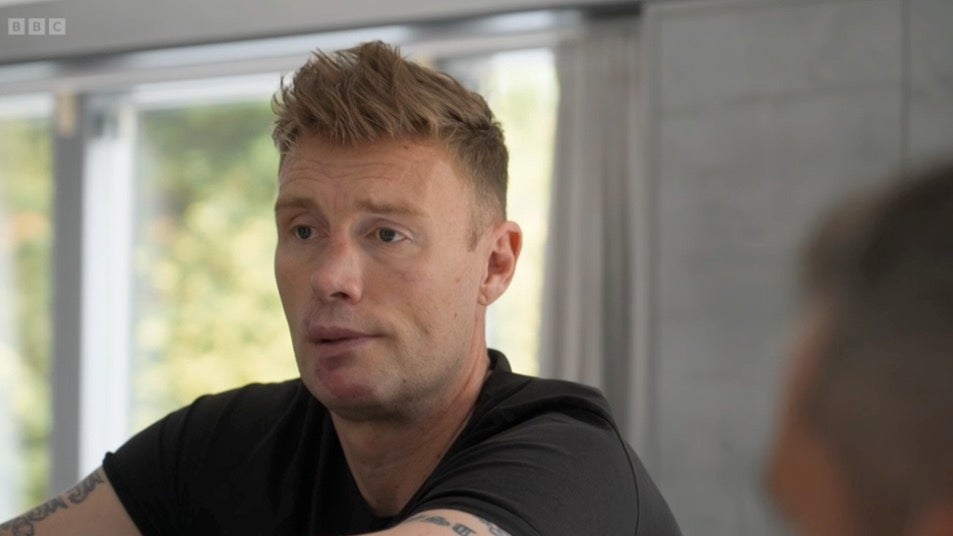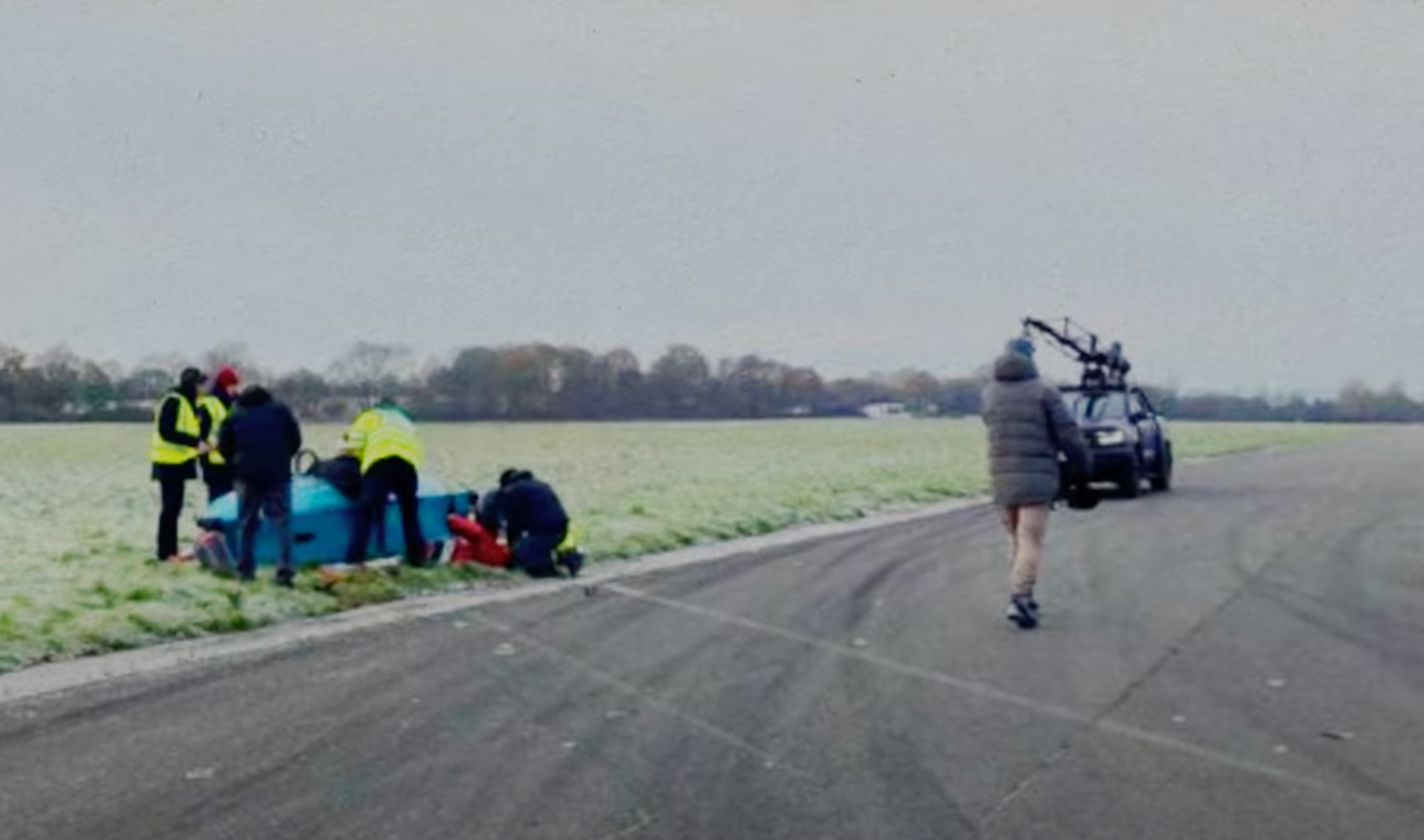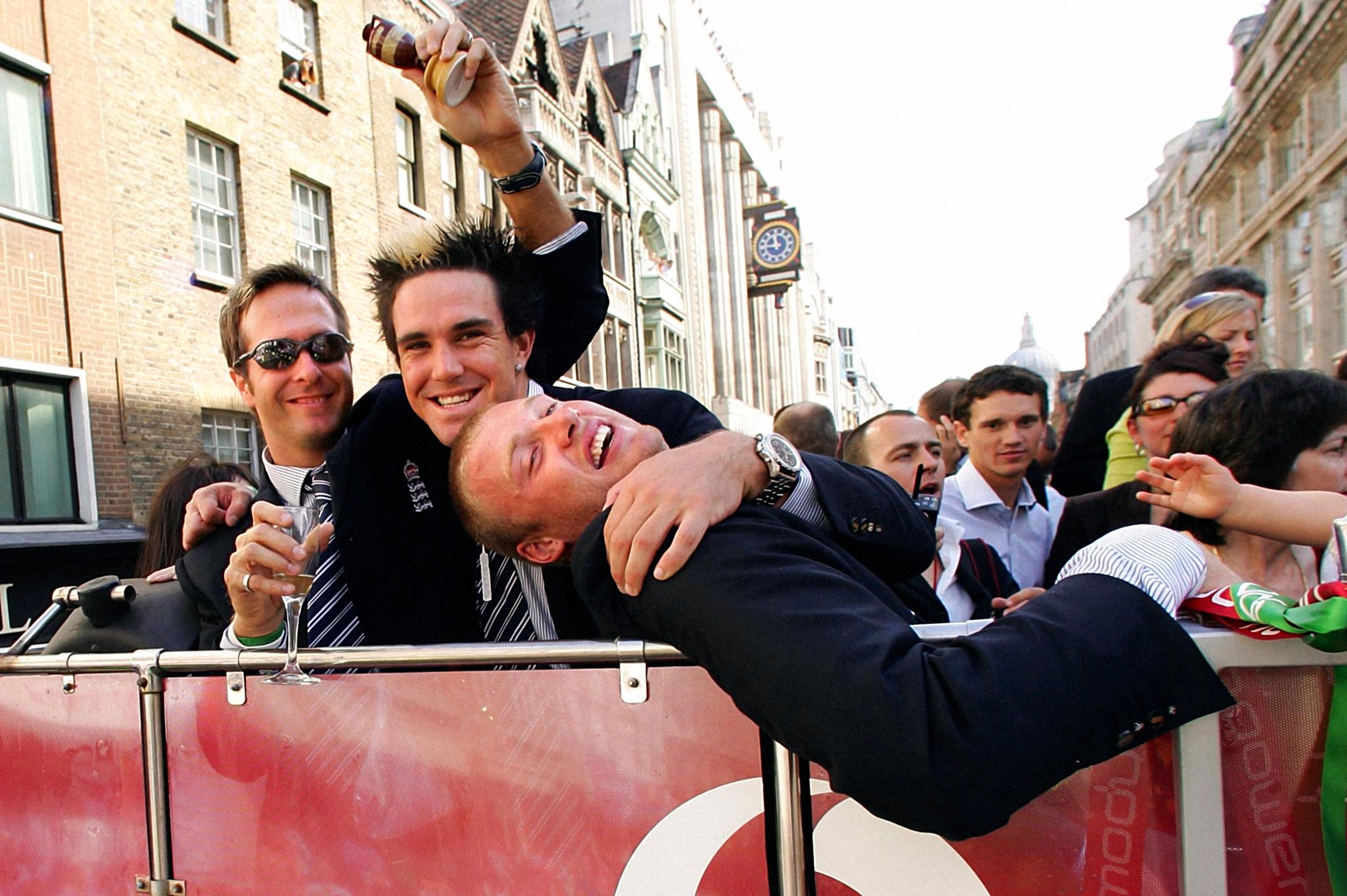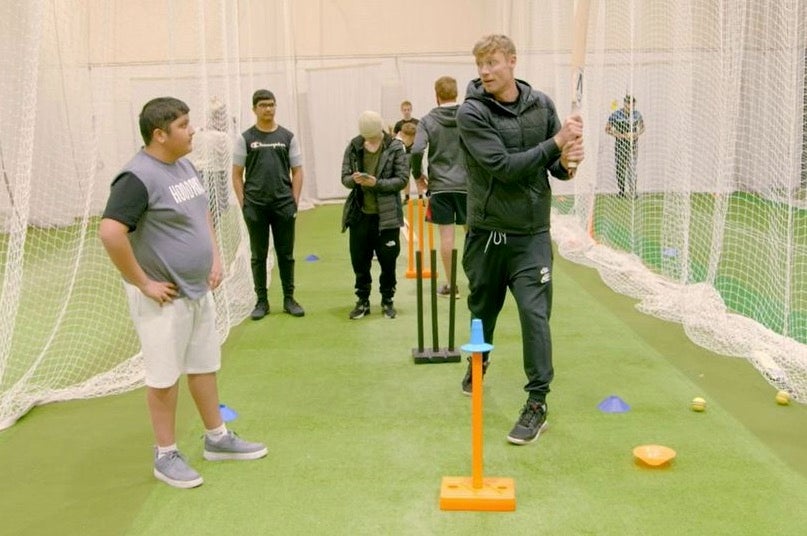The healing of Freddie Flintoff: Only now are we discovering the full story | The Independent
Andrew Flintoff was once the ultimate lad. Watching the new documentary of his life (Flintoff on Disney+) and seeing the footage of him in his playing prime is to appreciate what a bloke he was. Physically immense, with a tongue sharp enough to scorch paint, he possessed a will so substantial he could shape events.
On a cricket field, he didn’t just make things happen, he made them go his way. With his bludgeon of a bat and catapult of a bowl, this was the man who had everything. Plus, he could drink. And how he did... According to Michael Vaughan, his captain in the triumphant English victory in the 2005 Ashes series, he had a party trick involving shoving five bottles of beer in his mouth simultaneously and downing the lot in one. As an encore, he could then neck three bottles of wine, each consumed in a single, whale-like swallow. Oh, and he was a lovely drunk. Funny, silly, jokey.
“A champion bloke,” as his mentor David Lloyd describes him.
That was how to do it. This was maleness personified.
But what is clear from this new film is that it was never the whole story about Flintoff. The “mega lad” was a persona, adopted to conceal the nervy, self-conscious boy within. When he first stepped into the Lancashire Cricket Club dressing room as a 16-year-old prodigy, he was terrified. He may have had talent to burn, but socially, he was adrift in the midst of a collection of seasoned professionals. Then, at 17, he discovered drinking. Or rather his extraordinary capacity for the stuff. And with it came Freddie, a character born of the nickname bestowed on him by his new colleagues.
“I found this alter ego,” he explains in one of the many fascinating moments of this film. “I think there are two of us, but there may be more.”
Because beneath the brusque new exterior, the terrified young boy remained. He was prone to anxiety, he became bulimic in his attempt to counter mockery about his drink-fuelled weight gain, he was debilitated by depression. This was a complicated young man. One plagued by insecurity.
Freddie, though, was always there to disguise the mental alarms, to brush over the issues. Watching Flintoff in action was to have no hint of what was going on beneath. Even towards the end of his playing career, when his body was giving out, Flintoff could somehow do the impossible. As he did in the 2009 Ashes series when, his knee barely functioning, he nevertheless produced what those who saw it first hand reckon was the most terrifying spell of aggressive fast bowling in living memory to skittle out Australia at Lord’s.
“Bowling worked best for me when I was in pain,” he suggests. “Pain gave me something to overcome.”
Though this was not brainless, brutal ball chucking. He explains to the camera the meticulous methodology he developed for visualising the bowling process. He had planned in his head precisely what he was going to do at every turn. And then he went out and did it.

open image in gallery
That air of dauntless invincibility was one he took with him into his second career as a television personality. According to James Corden, it was one for which he had all the existing prerequisites. Corden recalls asking Flintoff to collaborate on a Comic Relief sketch in which his Smithy character from Gavin and Stacey lambasts the cricketer from the stage at the Sports Personality of the Year. Could you look cheesed off? Corden asked him. And indeed, in the footage replayed on the film, Flintoff looks more than a tad hacked off. He looks as though he is about to tear him limb from limb.
“At that point I realised,” Corden recalls, “he is a natural actor.”
That ability meant he could play the part of Fred with ease. And it took him far. Right to his ultimate ambition of presenting Top Gear. According to his wife Rachael, that was what he always wanted, to drive cars at high speed while having a laugh. It was, after all, what lads want to do with themselves. Unleash their inner Clarkson.
Then came the accident. It was a stunt too far. Though the film makes no attempt to apportion blame, presumably because of non-disclosure agreements around the compensation paid out, there was clearly a reckless indifference involved. Flintoff, however, did what he was told. Freddie, after all, never backed down from a challenge.

open image in gallery
The film gives us more detail about the accident than the squeamish may be able to stomach. Put basically, as he flipped the three-wheeled vehicle he was driving and was dragged along the road surface for more than 500 yards, Flintoff’s face was ripped in half. Both his lips and much of his right cheek remain embedded in the tarmac of the Top Gear circuit. His nose ended up somewhere near his left ear. The pictures of him in the immediate aftermath are beyond chastening.
The damage made an already self-conscious soul even more cripplingly self-aware. Every time he caught sight of the damage, he winced at the thought of what he looked like. “People will tell you it’s what’s inside that counts,” he says in the film. “B******s, it’s your face.”
Not that he was laughing about it at the time. Or indeed for the next seven months when, apart from medical appointments, he never left the family home in Cheshire. Flintoff was of no use to him then. Being loud, noisy and the centre of attention was the last thing he needed. He didn’t want anyone even looking at him. He sank into the deepest of depressions.
Not that he looked out of sorts at the film's premiere earlier this week. It was an event that was followed by an interview with Freddie, conducted by the former rugby player Martin Bayfield. Three years of plastic surgery have restored much of his old looks. Physically, he appears in fine shape: tall, slim, athletic in build. And his humour is still in full working order.

open image in gallery
Asked by Bayfield whether he had ambition for the film to make a difference in the world, he was quick to respond. “I’m always of the opinion on TV that if people want to watch, that’s brilliant. But if they don’t, oh well, who cares.” He then paused for a moment, before adding with perfect comic timing. “That’s probably not what Disney want to hear.” Not that Disney need to worry. This is appointment television.
What brought him out of himself was not the noise and solipsism of showbiz. It was, he says, the game he had turned his back on when he retired at the age of just 31. Cricket, he reckons, saved him.
First, he answered his old mate Rob Key’s invitation to watch a test match from the privacy of a box at Lord’s. Then he went further. He fulfilled a promise he had made before his accident and took a bunch of marginalised kids from his hometown of Preston to India on a cricket tour. It was the follow-up to a television show he had done for the BBC.
And Freddie Flintoff’s Field of Dreams showed us an aspect of the great lad we had never seen before. This wasn’t good – time Fred, with his acidic put downs and noisy jocularity. This was someone entirely different, someone empathetic, kind, encouraging. Sure, he was still a little uneasy in the public spotlight, trying to cling to the background rather than stealing centre stage. And sure, he still had a bit of a temper. But what came across above all was the manner in which he was driven by the urge to help his adopted crew become not just better cricketers, but better people. Be respectful, be kind, be generous was his insistence as he put his arm around their shoulder. And how the world warmed to this newly exposed aspect of the man we all thought we knew.

open image in gallery
In an interview with Michael Atherton in The Times this week, Flintoff makes it clear that it was his experience on his Indian expedition that renewed his appetite for life.
“They helped me as much as I helped them,” he told Atherton of the boys in his charge.
And lately, his abilities as a coach have been further recognised. Key, in his position as managing director of English cricket, got him to help the England team last winter. This summer, Flintoff will take control of the Northern Superchargers in the Hundred. Perhaps more pertinently, he will also coach the Lions, England’s development squad.
Among that cohort, intriguingly, is his 17-year-old son Rocky, reckoned by many to be the finest young cricketer Lancashire has seen since, well, his dad. What Flintoff will be encouraging players like Rocky is not how to drink 15 pints and abscond in a pedalo, but rather he will be helping them to come to terms with their fragilities, to open up, to listen, to learn. And thus become better players.
In a world of wannabe influencers like Andrew Tate and their misogynistic, hate-fuelled ideas about how to express masculinity, what Flintoff has become is an exemplar of a different, better, kinder approach. This was the one time uber lad who has learned – albeit in the most alarming of circumstances – how to be a proper man. And nobody would have seen that coming back in the day when they watched Fred downing three bottles of chardonnay.
‘Flintoff’ is available to watch on Friday 25 April on Disney+
🧠 Pro Tip
Skip the extension — just come straight here.
We’ve built a fast, permanent tool you can bookmark and use anytime.
Go To Paywall Unblock ToolSave articles to reading lists
and access them on any device
If you found this app useful,
Please consider supporting us.
Thank you!